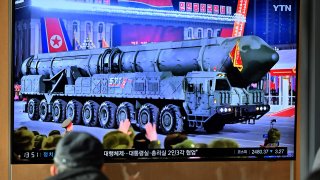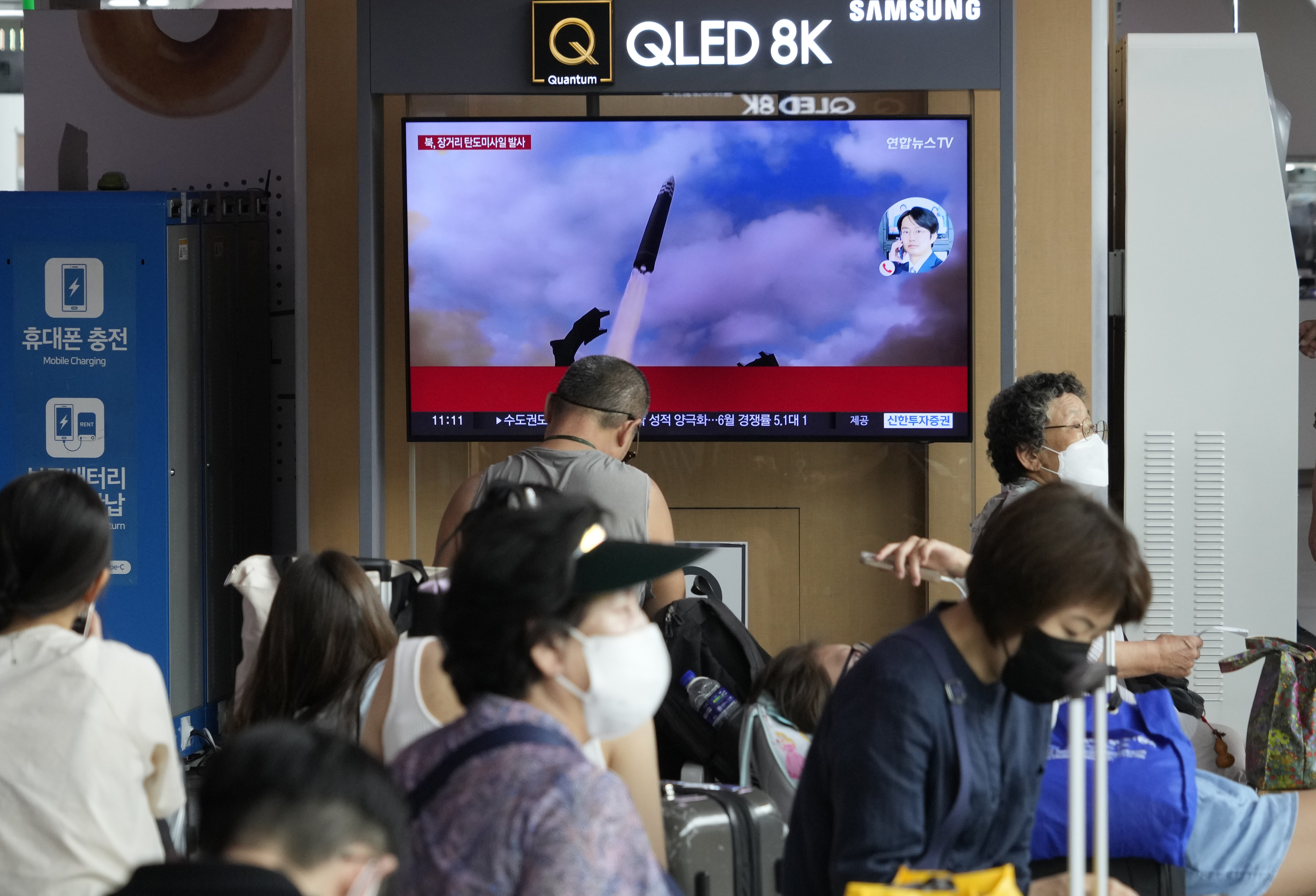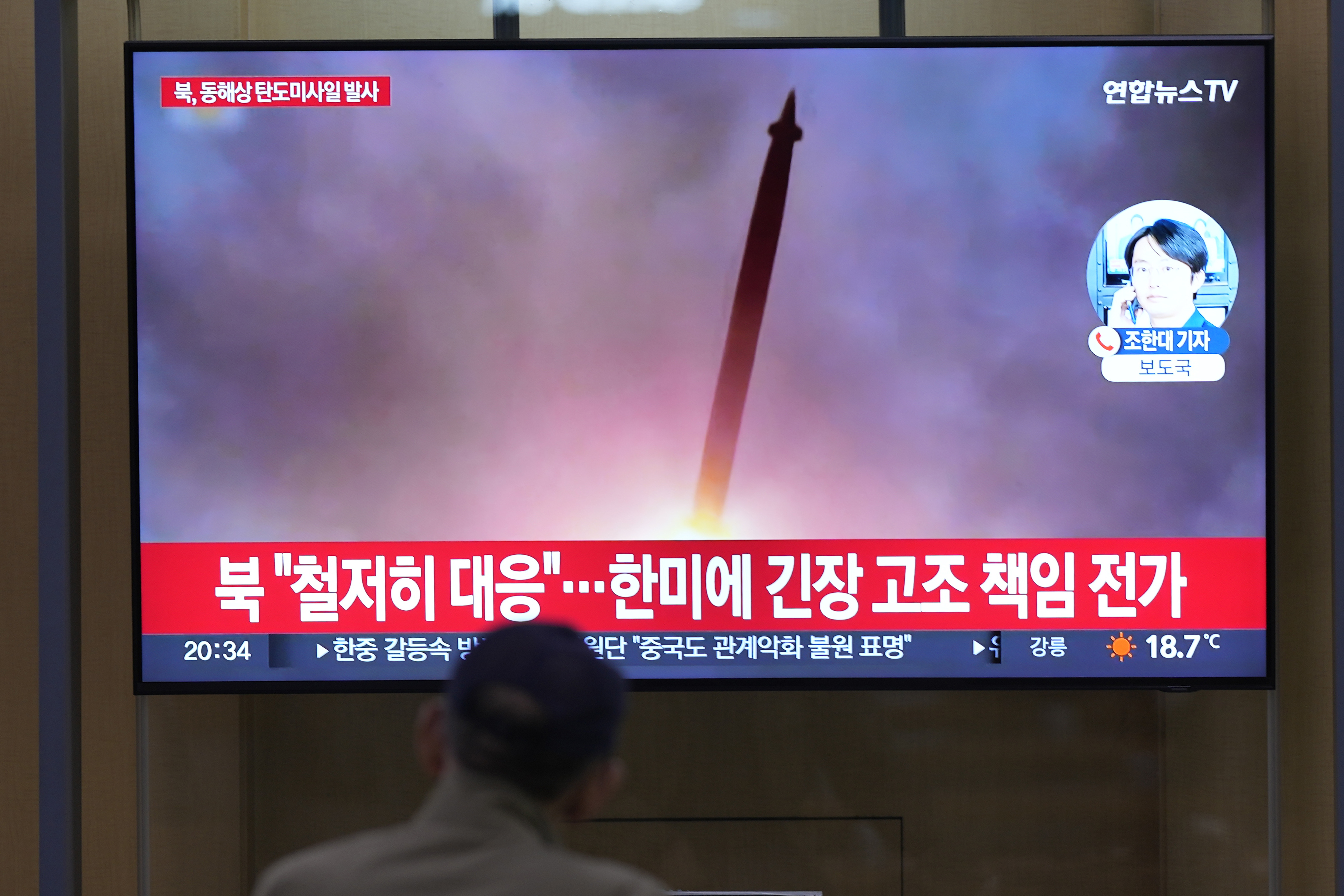
A bilateral consulting group of South Korean and U.S. officials met Tuesday in Seoul to discuss strengthening their nations’ deterrence capabilities against North Korea’s evolving nuclear threats.
The Nuclear Consultative Group was established as part of agreements Presidents Joe Biden and Yoon Suk Yeol made when they met in April.
Seoul officials say the body is tasked with sharing information on nuclear and strategic weapons operation plans and discussing joint operations. The U.S. would retain operational control of U.S. nuclear weapons, and Washington officials say the group’s establishment and other steps announced in April were meant to ease South Korean worries about North Korean provocations while keeping Seoul from pursuing its own nuclear program.
The group's inaugural meeting “will serve as an important starting point to establish powerful, effective Korea-U.S. extended deterrence,” Yoon said during a televised Cabinet Council meeting, referring to a U.S. security commitment to use full U.S. capabilities, including nuclear, to protect its allies.
Get a weekly recap of the latest San Francisco Bay Area housing news. Sign up for NBC Bay Area’s Housing Deconstructed newsletter.
Yoon said the allies will make substantial efforts to resolve North Korean nuclear threats based on “the Korea-U.S. alliance that is upgraded with a new, nuclear-based paradigm.”
Yoon visited a conference room to meet the South Korean and U.S. officials at the group’s inaugural meeting at the presidential office in Seoul. Yoon told them the two countries must bolster their deterrence capabilities to make North Korea not dare to think about using nuclear weapons, according to Yoon’s office.
Earlier, Sabrina Singh, a deputy Pentagon press secretary, told reporters Monday that the goal of the meeting is to begin implementing the Biden-Yoon declaration in April, “which reaffirms our joint extended deterrence in the region.”
The meeting was co-chaired by U.S. National Security Coordinator for Indo-Pacific Affairs Kurt Campbell and South Korea’s deputy national security director, Kim Tae-hyo.
North Korea’s nuclear ambitions have taken on new urgency after it openly threatened to use nuclear weapons in potential conflicts with its rivals and carried out about 100 missile tests since the start of last year.
Last week, North Korea conducted a second flight-test of a more mobile, powerful intercontinental ballistic missile designed to strike the mainland U.S. After observing that launch, North Korean leader Kim Jong Un vowed to further bolster his country’s nuclear fighting capabilities.
During their April summit in Washington, Yoon and Biden also agreed on the U.S. enhancing “the regular visibility” of its strategic assets to the Korean Peninsula, such as the planned periodic docking of a U.S. nuclear-armed submarine in South Korea, and the two countries bolstering joint training exercises. Biden also stated that any North Korean nuclear attack on the U.S. or its allies would “result in the end of whatever regime” took such action.
North Korea has responded that such steps proved the allies’ extreme hostility toward North Korea. It threatened to further bolster its escalatory nuclear doctrine in protest.
In a statement Monday, Kim's sister and senior adviser, Kim Yo Jong, warned that the U.S. moves to reinforce its extended deterrence commitment to South Korea will only make North Korea “go farther away from the negotiating table desired by (the U.S.)" and take steps to beef up its own military capability.
“(North Korea) is ready for resolutely countering any acts of violating its sovereignty and territorial integrity,” Kim Yo Jong said. "The U.S. should stop its foolish act of provoking (North Korea) even by imperiling its security.”



